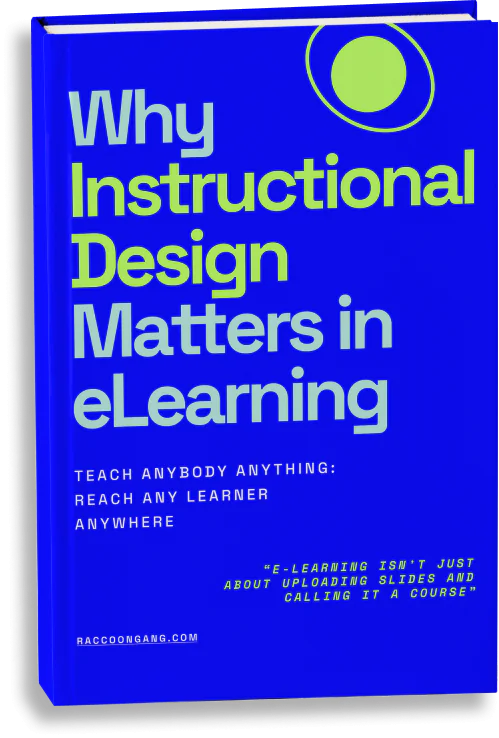We live in a world that is constantly shifting. There are some new technological breakthroughs, scientific discoveries, and cultural changes. Of course, there is an evolution in the field of education, too. One of the most exciting and innovative approaches is cohort-based learning. This method is effective because it changes how we learn and creates a unique community for mutual growth and development.
In this article, we will cover the importance and relevance of this learning method, its profound impact on the learning process, how it works, and the many benefits it offers students. In addition, we will look at real examples of successful cohort courses, demonstrating their application in various fields.
The Significance and Relevance of This Method of Learning
A cohort study is an important method in educational institutions that offers a dynamic and collaborative approach to learning. This approach facilitates an individualized educational experience, promoting a sense of community and common goals among students.
Cohort learning encourages interaction, peer-to-peer education, and the establishment of a support network that can enrich the overall learning experience. What’s more, the significance of this approach lies in its capacity to replicate real-world situations, preparing individuals for collaborative initiatives and varied professional settings.
As educational institutions continually explore inventive methods, cohort learning appears to be a promising model to address the evolving needs of students in the 21st century, emphasizing training and flexibility.
Impact on the Educational Process
Cohort-based learning in online education brings a human-centered approach to a digital platform. In online education, cohort learning emphasizes collaboration, diversity, and personal growth, transforming the educational process into a more interactive, supportive, and holistic experience. This transformation is evident in how it reimagines online learning, making it more engaging, collaborative, and responsive to the needs of a diverse student body.
How Cohort-Based Learning Works
In cohort-based learning, students progress together, creating a joint educational journey. With the help of this approach, they have a sense of community and shared experience, preparing for collaborative aspects of their professional lives.
Organization of the learning process
Cohort-based learning is characterized by a meticulously organized curriculum that navigates a cohesive group through a unified educational journey, promoting both individual and collective growth. This approach guarantees a well-structured and synchronized learning experience, facilitating the development of participants on both personal and collaborative levels.
Interaction of students in a group
Students’ involvement in a cohort learning setting is heightened through collaborative activities and collective discussions, encouraging crucial teamwork and communication skills. This emphasis creates a supportive network that promotes active participation, ultimately contributing to shared achievements within the group.
Synchronous and asynchronous elements of learning
Cohort learning combines real-time (synchronous) and self-paced (asynchronous) components, offering a versatile and engaging approach to online education. For instance, students can watch videos and complete their readings on their own time – these are the asynchronous parts. Then, periodically, they meet up, either face-to-face or online, to discuss concepts and participate in hands-on activities with their classmates, representing the synchronous aspects of the learning experience.
Real-time interactions and collaborative discussions provide immediate engagement, while asynchronous components, such as recorded lectures, allow students to progress at their own pace.
This combination aims to create a well-rounded educational experience that fosters collaboration, accommodates individual preferences, and adapts to the evolving landscape of online learning.
Benefits of Cohort-Based Learning
Cohort-based learning offers several distinct advantages, contributing to a rich and engaging educational experience.
Community interaction and support
One of the primary benefits of cohort-based learning is the emphasis on community interaction and support. Learners within a cohort form a tight-knit community, exchanging ideas and thoughts. This sense of belonging can significantly enhance the learning experience as participants can share insights, discuss challenges, and celebrate achievements together.
Increased motivation and accountability
Cohort-based learning creates a built-in support system, boosting student motivation and accountability. The shared journey with peers fosters a sense of collective progress, encouraging students to stay committed to their learning goals. Peer encouragement and friendly competition within the course are powerful motivators, inspiring students to actively engage with the course content and consistently contribute to discussions.
Real-time help
One of the unique advantages of cohort-based learning is the availability of real-time assistance. Participants can benefit from immediate support and clarification of concepts through live discussions, Q&A sessions, and collaborative activities. This instant access to assistance helps learners overcome challenges promptly, preventing the accumulation of confusion or frustration.
Focus on specific topics
Cohort-based learning helps keep things focused and organized. Everyone learns the same topic at the same time, which makes it easier to dive in and really understand the material. It’s a solid way to build skills and knowledge that actually stick and can be used in real-world situations.
Examples of Cohort-Based Learning Courses
Cohort-based courses have gained prominence in education. Here are two key aspects exemplifying the impact and versatility of cohort-based learning.
Experience from successful educational programs
Cohort-based courses have proven to be highly effective in various educational programs. The shared journey of a group of learners moving through the curriculum together promotes a sense of community and mutual support, making the educational experience more engaging and fruitful.
This collaborative approach enhances the effectiveness of training and facilitates meaningful discussions and the exchange of diverse perspectives. Successful examples include training programs where cohorts consistently exhibit higher engagement, retention, and knowledge retention, surpassing the outcomes achieved by traditional learning models.
Applications in various fields
Cohort-based learning is not confined to a specific academic domain but finds applications across various fields. Whether in professional development, corporate training, or specialized skill-building programs, cohorts offer a structured approach to learning that accommodates diverse subjects.
For instance, business and management cohorts might focus on case studies and real-world scenarios, while technology-oriented cohorts may emphasize hands-on projects and collaborative problem-solving. This adaptability underscores the broad applicability of cohort-based courses in addressing the unique needs of different disciplines.
Challenges and Limitations of Cohort-Based Learning
Cohort-based learning, despite its numerous advantages, is not without its challenges and limitations.
Financial aspects
Cohort-based learning often demands a financial commitment, posing a significant challenge that limits accessibility. To address this, explore flexible payment structures, scholarships, or alternative funding models aligned with diverse economic backgrounds for a more inclusive and effective learning environment.
Time zone dependency
Global cohort-based learning faces time zone discrepancies, hindering effective collaboration. To address this, implement strategies for flexible synchronous activities and enhanced asynchronous learning, ensuring active participation regardless of location for a more inclusive and effective learning experience.
Conclusion
The field of education is moving by leaps and bounds. Cohort-based learning is a great example of that change. It brings people together to learn as a group. This approach builds community and encourages shared experiences.
By embracing cohort-based learning, individuals gain knowledge and foster a sense of collective development, readying themselves to navigate the intricacies of an interconnected world. Thus, cohort training is a powerful strategy for preparing a new wave of leaders and professionals.







